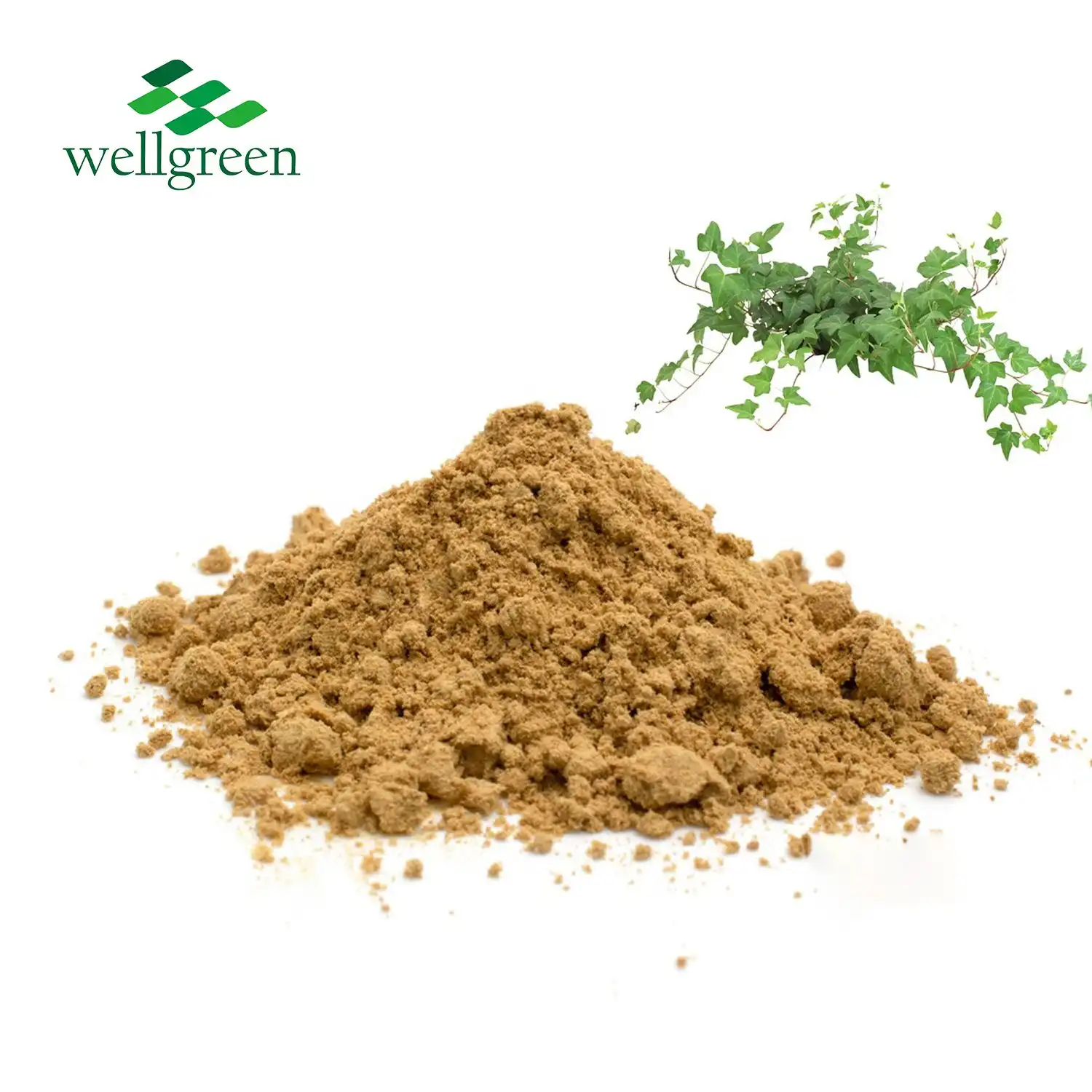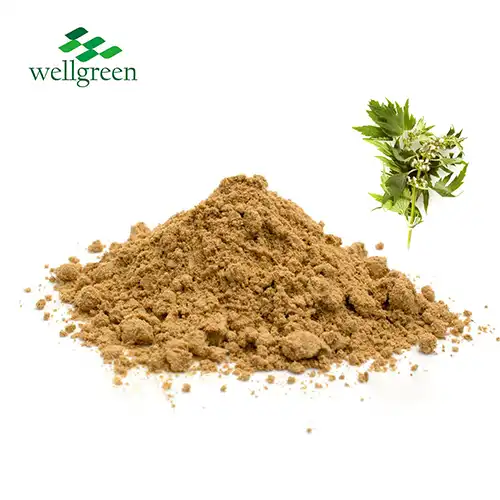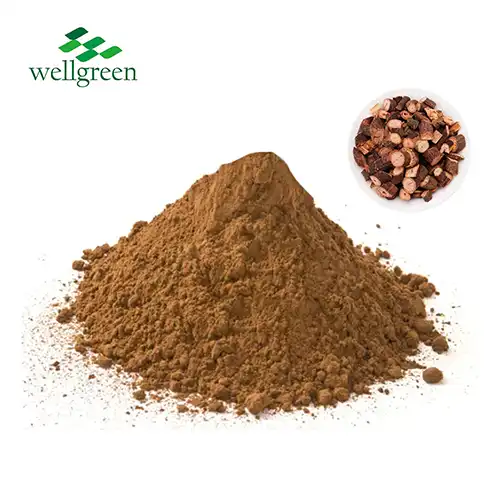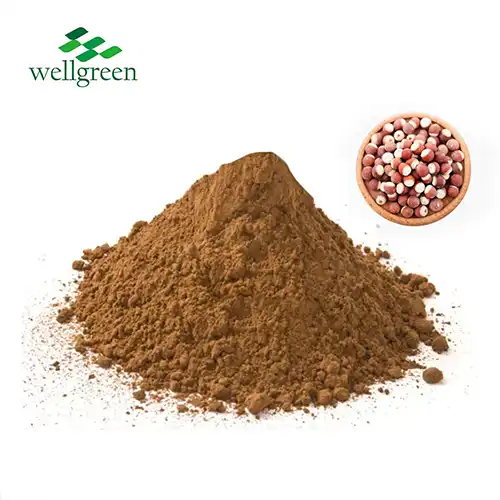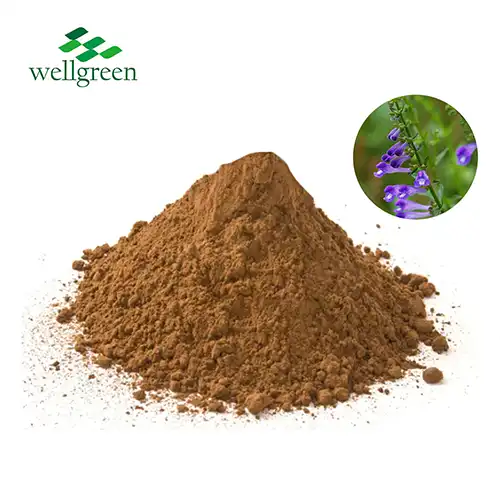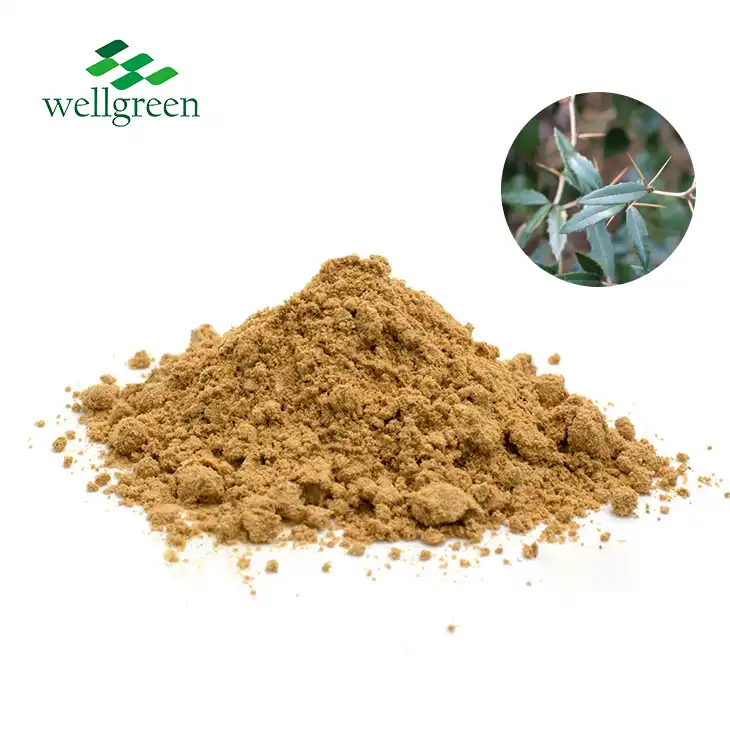Why Rosemary Extract Powder Is a Powerful Natural Antioxidant?
2025-09-08 14:13:50
Rosemary extract powder has emerged as a potent natural antioxidant, captivating the attention of health enthusiasts and researchers alike. This powerful compound, derived from the aromatic herb Rosmarinus officinalis, boasts an impressive array of antioxidant properties that combat harmful free radicals in our bodies. Rich in bioactive compounds such as carnosic acid, rosmarinic acid, and carnosol, rosemary extract powder effectively neutralizes oxidative stress, supporting overall health and well-being. Its ability to protect cells from damage, enhance cognitive function, and potentially reduce the risk of chronic diseases makes it a valuable addition to our daily routines. As we delve deeper into the science behind this remarkable natural antioxidant, we'll uncover the myriad ways rosemary extract powder can benefit our health and why it's gaining recognition in the world of natural supplements.

What Antioxidant Compounds Are Present in Rosemary?
Carnosic Acid: The Powerhouse Antioxidant
Carnosic acid stands out as one of the most potent antioxidant compounds found in rosemary extract powder. This diterpene phenolic compound exhibits remarkable free radical scavenging abilities, effectively neutralizing harmful molecules that can damage cells and contribute to various health issues. Research has shown that carnosic acid possesses up to three times the antioxidant power of green tea catechins, making it a formidable defender against oxidative stress. Its unique molecular structure allows it to penetrate cell membranes easily, providing protection from within. Moreover, carnosic acid has demonstrated the ability to activate the body's own antioxidant defense systems, further enhancing its protective effects.
Rosmarinic Acid: A Multifaceted Antioxidant
Rosmarinic acid, another key antioxidant compound in rosemary extract powder, offers a wide range of health benefits. This polyphenolic compound not only exhibits strong antioxidant properties but also possesses anti-inflammatory and antimicrobial effects. Rosmarinic acid has been shown to protect against lipid peroxidation, a process that can damage cell membranes and lead to various health problems. Its ability to cross the blood-brain barrier makes it particularly valuable for supporting cognitive health and potentially protecting against neurodegenerative diseases. Additionally, rosmarinic acid has been found to enhance the body's natural antioxidant enzymes, creating a synergistic effect that bolsters overall antioxidant defenses.
Carnosol: The Lesser-Known Antioxidant Powerhouse
While often overshadowed by its more famous counterparts, carnosol is a significant contributor to the antioxidant prowess of rosemary extract powder. This phenolic diterpene exhibits potent antioxidant and anti-inflammatory properties, working in tandem with carnosic acid to provide comprehensive cellular protection. Carnosol has been shown to inhibit the formation of harmful nitric oxide and prostaglandins, compounds associated with inflammation and oxidative stress. Research suggests that carnosol may also play a role in cancer prevention by inducing apoptosis (programmed cell death) in certain cancer cells while sparing healthy cells. Its unique structure allows it to act as both a direct antioxidant and an inducer of the body's own antioxidant defense mechanisms.
Mechanisms of Free Radical Scavenging
Direct Neutralization of Reactive Oxygen Species
One of the primary mechanisms by which rosemary extract powder combats oxidative stress is through the direct neutralization of reactive oxygen species (ROS). The antioxidant compounds in rosemary, particularly carnosic acid and rosmarinic acid, possess the ability to donate electrons to unstable free radicals, effectively neutralizing them before they can cause damage to cellular structures. This electron donation process stabilizes the free radicals, preventing them from initiating chain reactions that can lead to oxidative damage in lipids, proteins, and DNA. The phenolic structure of these compounds allows them to readily react with a wide range of ROS, including superoxide anions, hydroxyl radicals, and hydrogen peroxide, providing broad-spectrum protection against oxidative stress.
Activation of Endogenous Antioxidant Systems
Beyond direct scavenging, rosemary extract powder enhances the body's innate antioxidant defenses. The bioactive compounds in rosemary, particularly carnosic acid, have been shown to activate the Nrf2 pathway, a key regulator of cellular antioxidant responses. This activation leads to increased production of endogenous antioxidant enzymes such as superoxide dismutase, catalase, and glutathione peroxidase. By boosting the body's own antioxidant production, rosemary extract powder creates a more robust and sustained defense against oxidative stress. This dual action of direct scavenging and endogenous system activation provides a comprehensive approach to combating free radicals and their harmful effects.
Metal Chelation and Pro-oxidant Inhibition
Rosemary extract powder also exhibits antioxidant activity through metal chelation and inhibition of pro-oxidant enzymes. Certain transition metals, such as iron and copper, can catalyze the production of free radicals through Fenton reactions. The polyphenolic compounds in rosemary extract powder, particularly rosmarinic acid, have demonstrated the ability to chelate these metals, effectively reducing their pro-oxidant activity. Additionally, rosemary extract has been shown to inhibit enzymes like xanthine oxidase and NADPH oxidase, which are known to generate reactive oxygen species. By suppressing these pro-oxidant pathways, rosemary extract powder further contributes to the overall reduction of oxidative stress in the body, complementing its direct scavenging and antioxidant system activation mechanisms.
Health Implications of Antioxidant Activity
Neuroprotective Effects and Cognitive Enhancement
The potent antioxidant properties of rosemary extract powder have significant implications for brain health and cognitive function. The blood-brain barrier-permeable compounds, such as carnosic acid and rosmarinic acid, can effectively neutralize free radicals in the brain, potentially reducing the risk of neurodegenerative diseases like Alzheimer's and Parkinson's. Research has shown that these antioxidants may protect neurons from oxidative damage and improve cerebral blood flow, leading to enhanced cognitive performance. Studies have demonstrated improvements in memory, concentration, and processing speed in individuals supplementing with rosemary extract. Moreover, the anti-inflammatory effects of rosemary's antioxidants may help mitigate neuroinflammation, a key factor in age-related cognitive decline and neurodegenerative disorders.

Cardiovascular Health and Lipid Profile Improvement
The antioxidant activity of rosemary extract powder plays a crucial role in supporting cardiovascular health. By neutralizing free radicals and reducing oxidative stress, rosemary antioxidants help protect the endothelium, the delicate lining of blood vessels, from damage. This protection can lead to improved vascular function and reduced risk of atherosclerosis. Additionally, studies have shown that rosemary extract can positively influence lipid profiles by reducing LDL cholesterol oxidation and increasing HDL cholesterol levels. The anti-inflammatory properties of rosemary antioxidants may also contribute to cardiovascular health by reducing systemic inflammation, a known risk factor for heart disease. These combined effects make rosemary extract powder a promising natural supplement for maintaining heart health and reducing the risk of cardiovascular diseases.
Potential Anti-Cancer Properties
The potent antioxidant compounds in rosemary extract powder have shown promising potential in cancer prevention and treatment. Carnosic acid and carnosol, in particular, have demonstrated anti-carcinogenic properties in various studies. These compounds have been shown to inhibit the proliferation of cancer cells, induce apoptosis (programmed cell death) in tumorous cells, and prevent the formation of new blood vessels that feed tumors (angiogenesis). The antioxidant activity of rosemary extract may also protect healthy cells from DNA damage caused by free radicals, potentially reducing the risk of cancer development. While more research is needed to fully understand the mechanisms and efficacy of rosemary extract in cancer prevention and treatment, the current evidence suggests that its antioxidant properties could play a significant role in supporting overall health and potentially reducing cancer risk.
Conclusion
Rosemary extract powder stands out as a powerful natural antioxidant, offering a multifaceted approach to combating oxidative stress and supporting overall health. Its rich array of bioactive compounds, including carnosic acid, rosmarinic acid, and carnosol, work synergistically to neutralize free radicals, enhance endogenous antioxidant systems, and provide protection against various health challenges. From neuroprotection and cognitive enhancement to cardiovascular support and potential anti-cancer properties, the health implications of rosemary extract's antioxidant activity are far-reaching and promising. As research continues to uncover the full potential of this remarkable natural compound, rosemary extract powder is poised to play an increasingly important role in preventive health strategies and natural supplementation.
Contact Us
To learn more about our high-quality rosemary extract powder and how it can benefit your health or product line, please contact us at wgt@allwellcn.com. Our team of experts is ready to assist you with any questions and provide detailed information about our premium plant extracts.
References
1. Andrade, J. M., et al. (2018). Rosmarinus officinalis L.: An update review of its phytochemistry and biological activity. Future Science OA, 4(4), FSO283.
2. Loussouarn, M., et al. (2017). Carnosic Acid and Carnosol, Two Major Antioxidants of Rosemary, Act through Different Mechanisms. Plant Foods for Human Nutrition, 72(1), 40-44.
3. Birtić, S., et al. (2015). Carnosic acid. Phytochemistry, 115, 9-19.
4. Hossain, M. B., et al. (2011). Antioxidant activity of spice extracts and phenolics in comparison to synthetic antioxidants. Rasayan Journal of Chemistry, 4(4), 907-916.
5. Oliveira, J. R., et al. (2019). Rosmarinus officinalis L. (rosemary) as therapeutic and prophylactic agent. Journal of Biomedical Science, 26(1), 5.
6. Habtemariam, S. (2016). The Therapeutic Potential of Rosemary (Rosmarinus officinalis) Diterpenes for Alzheimer's Disease. Evidence-Based Complementary and Alternative Medicine, 2016, 2680409.

